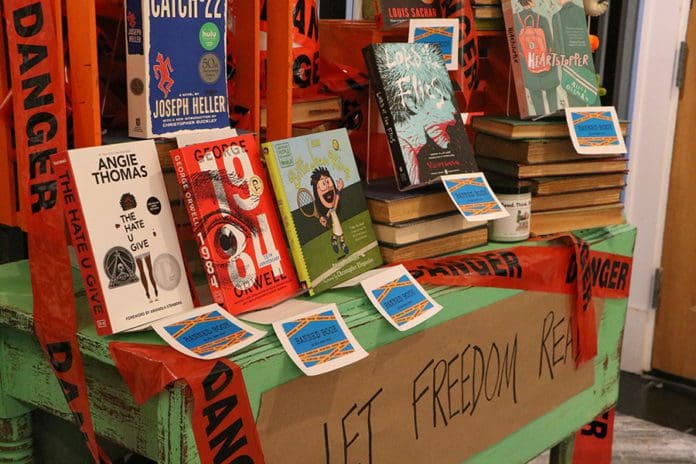This is Banned Books Week. On Monday, the Holocaust Education Resource Council hosted a program on the history of book bans in Nazi Germany.
The lecturer was Monte Finkelstein, a history professor at Tallahassee Community College.
He described how the Nazis justified banning certain books, the type of books they banned, and the actions they took to keep those books from the public.
Books considered “foreign” or immoral were banned. They included works by Ernest Hemingway, Sigmund Freud, Helen Keller, Jack London and H.G. Wells.
Finkelstein said many students, professors and librarians helped to suppress the books on the blacklist.
“And many library owners cooperated. What did they do? ‘I don’t want to be raided. So, I took the books off the shelf by myself.’ More accommodation by more people,” Finkelstein said. “The students were guided by a blacklist developed by three – I hate to do this – by three pro-Nazi librarians. [laughs] Librarians also got to accommodate the regime. I’m sorry. But three Nazi librarians helped. They developed this blacklist of books.”
Although Germany had been known as a literate country, in 1933 university students in 34 university towns burned more than 25,000 books, claiming they were “un-German.”
9(MDA4MzU1MzUzMDEzMTkyMzAwMzY5MjY1Mw004))
9(MDA4MzU1MzUzMDEzMTkyMzAwMzY5MjY1Mw004))


